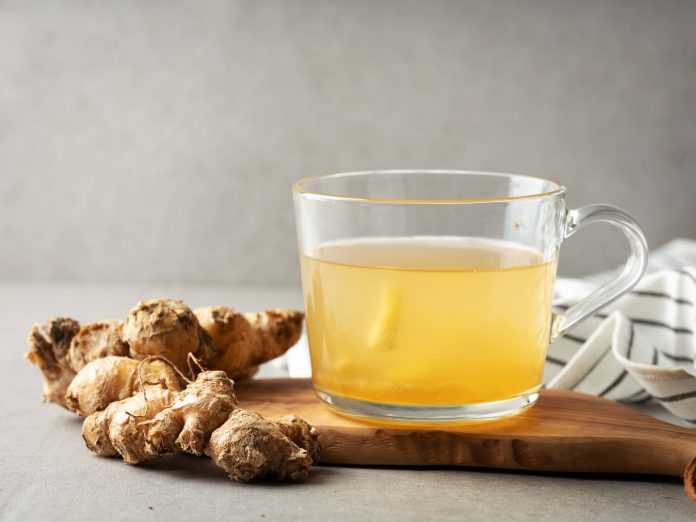Reading Time: 3 minutes
Belonging to the Zingiberaceae family alongside turmeric, cardamom and galangal (Thai ginger), ginger has proven its an all rounder.
This flowering plant, native to Southeast Asia, not only enhances the flavour of both sweet and savoury dishes but also offers a multitude of health benefits. Its anti-inflammatory and anti-nausea properties, among others, make ginger a versatile remedy that can aid in weight management, arthritis relief and most importantly for stomach related ailments.
Ginger is a well-established natural remedy, known for its efficacy in treating diarrhoea and alleviating gastrointestinal issues and distress. Its therapeutic value is supported by both traditional herbal practices and modern medical research. Ginger’s ability to relieve stomach related problems is gaining recognition world wide, especially among the folk practising Western medicine.
Ginger for bloating —
Bloating is a common experience, often triggered by overeating or food intolerance. Ginger, in the form of tea or dried ginger, can provide relief. It’s especially effective in reducing indigestion, the leading cause of bloating. Incorporating ground ginger into your daily routine, like adding it to your morning beverage or into your food, can help prevent bloating. However, persistent stomach problems, including abdominal pain and cramping, should not be ignored and can’t be cured with just ginger. For chronic or severe issues, consulting a gastroenterologist is essential, as natural remedies like ginger are better suited for minor and temporary bouts of stomach discomfort.
Ginger for heartburn and indigestion —
Ginger can be a valuable ally in addressing the uncomfortable burning sensation in your chest caused by or accompanied with indigestion. Beyond enhancing intestinal movement, ginger also shields the stomach lining and reduces the backflow of stomach acid into the oesophagus after meals, making it a promising solution for heartburn and acid reflux. If you’re someone who is grappling with unexplained indigestion, characterised by symptoms like abdominal pain, bloating, fullness, belching and nausea, ginger can be extremely beneficial. By expediting food passage through the stomach, ginger alleviates indigestion and discomfort. Studies reveal that ginger consumers experience twice the digestion speed compared to non-consumers, attesting to its power in supporting gastrointestinal health.
Ginger for nausea —
Ginger is a potent remedy for combating nausea caused by migraines, stomach discomfort, food poisoning, pregnancy or motion sickness. While ginger is generally safe, it is advisable to consult a physician before consuming large amounts of it. The soothing effect ginger has on the stomach is attributed to its anti-inflammatory properties which improve your digestive function and influence your blood pressure-regulating hormones, which collectively work to calm an upset stomach.
Ginger for diarrhoea and IBS (Irritable Bowel Syndrome) —
Ginger is a safe and well-tolerated natural remedy, making it a low-risk option for alleviating stomach pain caused by IBS and diarrhoea. While ginger offers potential relief for various gastrointestinal issues, it should not be considered a panacea for all problems and it most definitely is not a replacement for necessary medical treatment.
How much ginger to eat per day —
The most advisable way to incorporate ginger into your diet is in its natural form. While ginger is generally considered safe, it’s recommended that you consume no more than 4 grams of ginger per day. Starting with a conservative dose of 1 g or less per day and then gradually increasing it is a prudent approach to avoid unforeseen side effects.
Fresh ginger or prepared ginger?
Ginger offers versatility in its use, with various preparations like ginger powder and ginger juice. Different studies have used various forms of ginger, which explains the variation as results of the benefits of ginger. There is no conclusive evidence favouring one ginger preparation over another. So it all boils down to what you prefer.
One popular and healthful way to consume ginger is by making ginger tea, which can be easily prepared at home by steeping grated, chopped, or powdered ginger in boiling water. This can be customised with the addition of lemon or honey. Ginger tea bags are also readily available. Ginger can also be incorporated into smoothies, or adding a dash of it to your morning coffee. Adrak chai is one of the most popular forms of consuming ginger as well. Avoid eating ginger candies as it contains high levels of sugar which can do more harm than good.
Takeaway —
Ginger is a safe and time-tested home remedy with a low likelihood of causing severe side effects. Throughout history, it has been employed in traditional medicine, often in combination with other ingredients like honey or garlic. Consulting a healthcare professional knowledgeable in herbal medicine is essential if you’re employing ginger in a medicinal way.









Very good post covering health benefits esp. food habits On using ginger I have advised my family members to add ginger in our food and keep it everyday in small doses.
Thanks Seniors today and team !
Comments are closed.